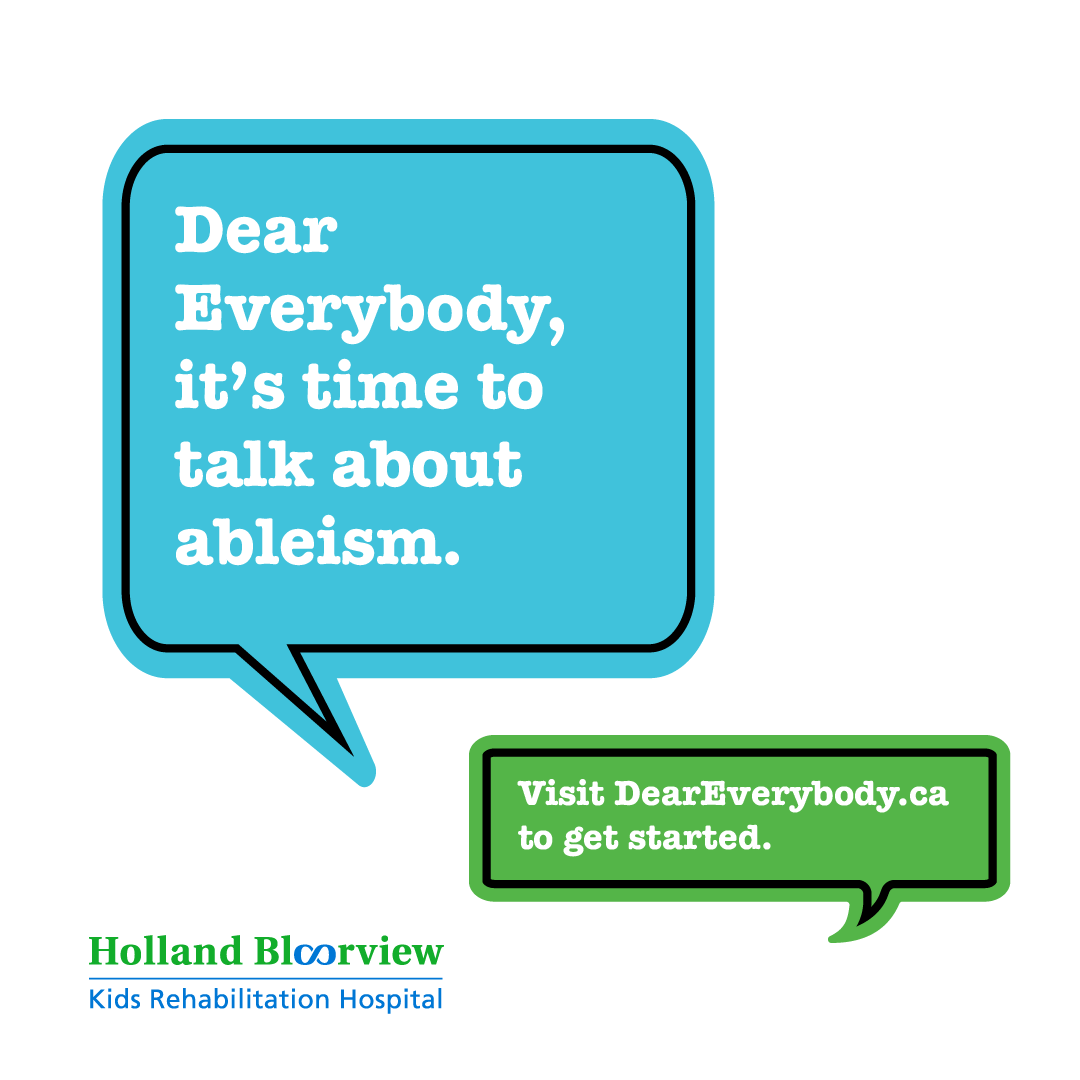Let’s talk about…
Ableism and Identity
Well-spoken is one way to describe Nathan. Confident is another.
While most university students spend their free time hanging out with friends or buried in school work, Nathan also spends his time behind a camera, as a model for brands like Adidas and Roots. It’s an identity Nathan takes on, but it’s one he’s trying to challenge as a Black male with a disability.
As Nathan models the latest trends, as an individual who has cerebral palsy and uses a walker, he wholeheartedly strives to also model authentic inclusion.
How would you define ableism?
Ableism is looking at a person for what you think they can’t do, rather than just acknowledging who they are as an individual. A form of ableism that I experience all the time is when I go somewhere and people see me, but they don’t speak directly to me. If I’m with a friend, for example, they say, “What’s wrong with your friend?” instead of just speaking to me. At the end of the day, I have no shame in talking about myself because I recognize that my vulnerability can help so many other people.
Is that why you started modelling?
There were a lot of times growing up where I’d get odd stares or comments. That used to break me up, but I remember my mom telling me, “Nathan, it’s okay, because one day everybody is going to be staring at you, but they’re going to be staring for the right reasons.” Now, every time I do a photoshoot, I hear my mom’s voice saying that.
Do you think that your identity as a Black man with a disability impacts how others perceive you?
I’m really happy that you asked about that, because the issue that I had with coming to terms with my disability wasn’t necessarily how I felt about myself. I’ve always been a pretty self-aware and confident person. However, whenever I would go out with my friends—whether it would be at the parties, festivals, events—there would always be at least four people who actually looked at me with disgust because they believed I stole my walker.
Actually, one of the first people to accuse me of stealing my walker was a police officer. I was going on a walk with my friend Reese, and police officers made a U-turn to ask me, “Why are you looking at me? Why are you looking at the road? Is that yours? Where you going?” I’m quite used to talking about the nature of my disability for almost as long as I can remember. So I thought: OK, I can show him that I have a disability. I’ll talk about my knowledge, he’ll have to understand—but that was not the case at all. They got outside of the car and they made me prove to them that I had a disability. That was the first kind of hit on my confidence because they made me walk for them to prove I had a disability.
I’m sorry you went through an experience like that.
It was just terrible because it really did mess with my head for quite some time because I was really young when it happened. I was about 14 or 13.
What happened after that all unfolded?
My mom works with the police, and when she found out what happened, she set up a meeting with them. At the meeting, I asked the officer, “What about me made you think that I was up to something?” And they said, “When we first saw you, you seemed too confident and too happy.”
The undertone that sets is very blatant: that I’m expected to have a less valuable life because of my disability.
What do you think is the impact of campaigns like Dear Everybody on people’s perceptions of disability?
Dear Everybody is so amazing because much of what we learn nowadays is from the media. We’re constantly consuming media, and disability representation is not something that we have seen in the past. And then, when we do see disability representation, we’re often given the story of a tragic hero, where somebody focuses on the disability and the negative effects that it has on the person, rather than the positive effects.
At the end of the day, disability shouldn’t be a shameful thing. It shouldn’t be something that you feel uncomfortable about. It’s similar to when people are scared to identify me as a Black male, and they say, “Oh, you’re a person of colour.” You have to be comfortable with these conversations because there’s no shame if all you’re trying to do is learn. So, I feel like this campaign is all about acknowledging people as people.
And how do you want to be acknowledged, personally?
I just want people to acknowledge me as the confident person that I am. I don’t want to be seen, at the end of the day, as a perfect person because I know I’m far from perfect. But I want to be acknowledged for the things that I’ve done, because whenever I do achieve new goals, it’s not for people’s validation, it’s to support the people who don’t believe in themselves, rather than to try to prove myself to other people.
